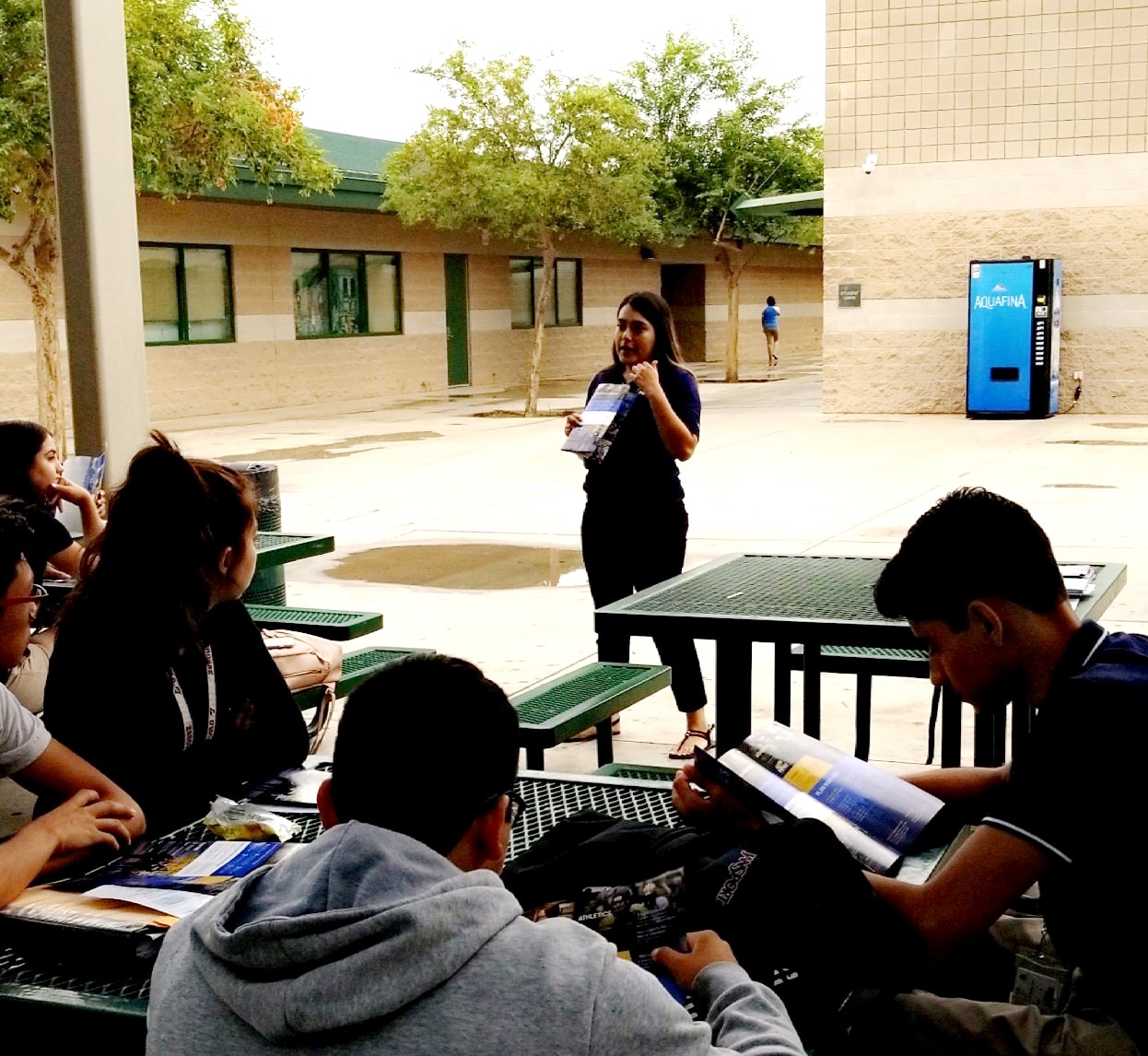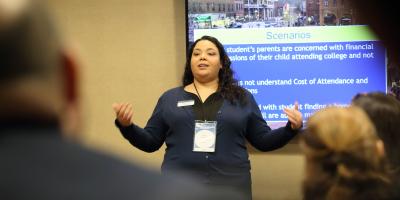When thinking about what makes successful universities, we might think about the education provided, the caliber of professors or the opportunities for research, but another key factor comes down to the ability to recruit students.
“Our recruitment efforts connect with students from a wide range of backgrounds and geographies. We help students determine if NAU is a good fit for them, and help them navigate the process of becoming a student,” said Chad Eickhoff, director of NAU’s University Admissions. “It all starts here.”
Eickhoff has worked in NAU’s University Admissions (UA) office for 8 years. He and his team spend the majority of the academic year traveling around the state and the country, offering high school and community college students and their families an opportunity to learn more about Northern Arizona University in hopes of helping students learn more about what it means to become a Lumberjack.
Though the pandemic has created challenges for college recruitment like the inability to travel, one benefit has been the shift to virtual events, providing the admissions team the ability to reach students they would have otherwise never had the opportunity to engage.
The team is taking advantage of this new online platform and the ability to reach more students by offering more non-English speaking sessions than ever before. Typically, one or two Spanish events are offered a year. This semester, the UA team offered 15 virtual Spanish Information Sessions and counting.
Until 2017, these sessions were only offered in English. Then, Nancy Navarro, a regional admissions officer based in Yuma at the time, conducted a fully Spanish information session at San Luis High School in southwestern Arizona.
“Going to college in Latinx families is a decision made by the entire family,” said Navarro, now the assistant director for diversity recruitment in UA. “It is crucial that we make information and resources accessible to the families of our students. Since adding Spanish resources, we have noticed that families are feeling more included in the decision to go to college and are more likely to attend the sessions with their students. We find that families also feel more engaged when they can speak to an admissions representative that can use a shared language base.”
Azeret Martinez, a student recruitment coordinator, added that because the parents and family members of the students can actively participate in their children’s education search, it builds trust.
And for Navarro and Martinez, offering these options for students is personal. Not only are they NAU alumnae, but also are first-generation students with Spanish-speaking parents.
“It was hard to navigate the college admissions process. The language barrier created some obstacles for us along our admissions journey,” Navarro said.

“Families tell us how comfortable they feel talking to us and how good it feels that they no longer have to bother or request that their student translate,” Martinez said. “They are always grateful to have someone who speaks Spanish, and having someone help them that as gone through the process as a first-generation Spanish-speaking family themselves.”
To break them down further, the team developed specialized material to meet the needs of Spanish-speaking students and families; these include translated recruitment mailers and fliers, financial aid and scholarship information and the aforementioned presentations in Spanish. The UA team has three fluent Spanish speakers who provide support to these families, but the team also collaborates with Spanish-speaking partners across campus.
The UA team is using the opportunities in recruitment to help further NAU’s goal of becoming a Hispanic Serving Institution (HSI)—a designation that brings additional support, resources and funding to Latinx/Hispanic students while helping bridge the gap between the university and Spanish-speaking communities. To receive the title of an HSI, at least 25 percent of NAU’s student population must identify as Latinx/Hispanic. When UA began their Spanish initiatives three years ago, 23 percent of NAU’s population identified as Latinx/Hispanic. At the close of last year, the university had jumped to 24.4 percent.
“We were told it would be a very small crawl year after year to get to that 25 percent once we reached the 20 percent marker, but here we are at 24.4 percent,” Navarro said. “Because having the HSI designation brings in additional support, it will in turn provide opportunities for Latinx/Hispanic students in their careers and lives, which then leads to more representation of diverse individuals earning their degrees and taking on leadership roles in these communities, leading to more role models for future students.”

(928) 523-4789 | McKenzie.McLoughlin@nau.edu




